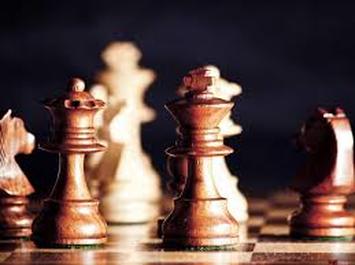|
"Life is like a game of Chess, changing with each move."
Chinese Proverb |
When I first introduced the idea of teaching Chess to the children I work with, I was initially met with an almost hostile reaction from staff. "These kids- (they would say)- can't even do a two digit addition problem and you expect them to formulate a checkmate?" Of course, my answer was "Yes!" I knew that these kids could formulate a checkmate if we just gave them an opportunity to do so.
Throughout my short 11 years working with these students, I hope to have made an impact on the children, my colleagues, and the administration regarding what Chess can do and the impact that it can have on academic, social, and intra-personal skills. We are so often stuck in our little paradigms of how education must go and always miss out on how education should be or even could be. We seem to forget that the children we work with are individual beings that come with original thoughts and learning styles. No matter what student you are working with and trying to help, Chess can help you to make that student's life more productive and satisfying, especially in an academic, social, and intrapersonal arena. In order to help you understand the significance of what I am saying, I welcome you to listen to the words of a truly great master of Chess- Gary Kasparov former world champion- on his perspective regarding Chess and the Individual and Chess and Decision Making from his book How Life Imitates Chess. It is worth listening to the experts with an open ear, an open mind, and an open heart. |
Ironically, one of the challenges that was posed to me when I first began to teach Chess therapeutically was: How can I take the inherent principles in Chess and help the children apply them to their own life? At first, I did not really have an answer. However, it seemed that the more I taught Chess the more I recognized that the children could not escape the parallelism of what was inherent in Chess to that of their everyday lives. I began using terms such as "capture, block, or move" and "make a good Chess move." The kids were able to understand this and I have had much success with utilizing Chess to help kids make good decisions- a task that is extremely difficult to do with the population we work with.
Please remember that the children we work with are cognitively delayed to such extremes that it is quite difficult to , and behaviorally troubled. Dr. Nicholas Hobbs, the creator of the "Re-ed" philosophy, calls them "Troubled and Troubling Children." Their academic level is extremely low and they have difficulty regulating their emotions and getting along with others due to severe neglect. They can be extremely oppositional with adults and parents and the I.Q. level f0r most of these kids is in the 80-100 range.
The video below is a project I was working on with the students, administration, and parents. It shows several different perspectives on Chess and how it has made a difference in the lives of the children we work with. I would like to give you a little background on those interviewed in the order they appear.
Mr. Todd Ray- Principal- Mr. Ray embraced Chess the moment I walked through the center's doors. He has been an incredible role model and mentor. He has helped me to recognize that even in the most difficult times, it's ok to laugh! He has also encouraged me to bring my best to the children we serve by paralleling Chess to life. I can call him my friend and mentor. The children are lucky to have such an excellent principal.
Garby- Student- Garby is a young lady with oppositional defiant behaviors among other issues. Garby began to embrace Chess with enthusiasm and began to demonstrate more patience with others and minimize her counter aggressive behaviors toward those that gave her direction. Garby quickly blossomed and was able to return to the public school. I'd like to think that Chess helped her in some way.
Navon- Student- Navon is an 18 year old young man that began to learn Chess when he was about fifteen. He is very proud of himself for being able to do so well with such an esteemed game. He acknowledges the potential that Chess can have on his well being and decision making. Please pay close attention to how his face lights up when he begins to tell you about an adult he played in Chess.
Thaddea- Student- Well, you have already met Thaddea. This is the last video of her that I was able to get before she went off to public school. She was an extremely intelligent young lady and really inspired me to continue teaching Chess to the population that I work with.
Ms. May- Parent- Ms. May was a parent of a young lady, Allie, that came to us with extremely oppositional behaviors and processing issues. When Ms. May was able to recognize the attachment Allie had to Chess, she was then able to parallel Chess to the dynamics of their personal lives together. The result for her was a Godsend. Ms. May was keen as to how to utilize the inherent language in Chess to get her daughter to be more productive and successful. It is amazing to see the beauty that Chess can weave, especially in areas where there may be no more hope.

